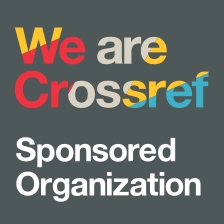Smart Village ss The Answer to The Future Village
DOI:
https://doi.org/10.35457/translitera.v11i2.2344Keywords:
Smart Villages, Society 5.0, Information technology, villagesAbstract
This paper aims to examine the concept of Smart Villages which is trying to be applied to the village of the future. Village conditions in Indonesia from year to year always experience a decline in terms of welfare and also the economy, this is due to uncontrolled urbanization resulting in village conditions getting worse. In the era towards society 5.0, problems related to this village can be overcome by implementing smart village solutions in Indonesian villages. Smart villages are believed to be able to improve village welfare conditions. The research methods used are library research. The results of this study explain that many villages in Indonesia are not ready to implement this smart village. Due to several factors such as poverty, low literacy, lack of attention to their own area and also problems. There needs to be special attention in the implementation of this smart village, presented in several stages. smart village includes various methods to optimize its implementation, it is necessary to prepare villages and communities to become eco-villages before entering the smart village concept. This study recommends the local village government as well as the community to pay more attention to the smart village concept, because smart villages cannot be generalized to the smart city concept, even though it is a derivative. This can be an initial capital in understanding the smart village concept.
References
Baru, V. P., Djunaedi, A., & Herwangi, Y. (2019). Tahap Pengembangan Smart Kampung di Desa Ketapang Kabupaten Bayuwangi. Jurnal Planoearth PWK FT UMMat e-ISSN 2615-4226. (4)2: 68-80.
Herdiana, D. (2019). Pengembangan Konsep Smart Village bagi Desa-Desa di Indonesia. IPTEK-KOM. (21)1: 1-16.
Hogan, P., Cretu, C., & Bulc, V. (2020). EU Action for Smart Villages. European Commision, 1-8. Retrieved from European Network for Rural Development.
Huda, H. A., Suwaryo, U., & Sagita, N. I. (2020). Pengembangan Desa Berbasis Smart Village (Studi Smart Governance pada pelayanan Prima Desa Talagasari Kabupaten Karawang). Journal MODERAT. (6)3: 539-556.
Indonews. (2020, October 1). Desa Smart Village di Era Pembangunan Nasional Berkelanjutan. Retrieved from Indonews.id: https://indonews.id/artikel/312846/Desa-Smart-Village-di-Era-Pembangunan-Nasional-Berkelanjutan/
Nakanishi, H. (2019, January 9). Modern Society has reached its limits. Society 5.0 will liberate us. Retrieved from World Economic Forum: https://www.weforum.org/agenda/2019/01/modern-society-has-reached-its-limits-society-5-0-will-liberate-us/
Nidya, I. R. (2020, October 2). Dua Desa Ini Jadi Percontohan pengembangan smart village Nusantara. Retrieved from Kompas: https://money.kompas.com/read/2020/10/02/091047426/dua-desa-ini-jadi-percontohan-pengembangan-smart-village-nusantara?page=all
Sihabudin, A. A., Yuliani, D., & Garvera, R. R. (2019). DEVELOPMENT OF VILLAGE BASED ON THE ECO-VILLAGE CONCEPT TOWARDS AN INDEPENDENT VILLAGE. ICOGISS. ISBN: 978-602-6 988-75-1, 327-337.
Subekti, T., & Damayanti, R. (2019). Penerapan Model Smart Village dalam Pengembangan Desa Wisata: Studi pada Desa Wisata Boon Pring Sanankerto Turen Kabupaten Malang. JPALG (Journal of Public Administration and Local Governance). 18-28.
T, A. M., & Purwoko, B. (2018). STUDI KEPUSTAKAAN MENGENAI LANDASAN TEORI DAN PRAKTRIK KONSELING EXPRESIVE WRITING. Jurnal BK UNESA. (8)1.
Downloads
Published
Issue
Section
License
Authors who publish with this journal agree to the following terms:
- Copyright on any article is retained by the author(s).
- Author grant the journal, right of first publication with the work simultaneously licensed under a Creative Commons Attribution License that allows others to share the work with an acknowledgement of the work’s authorship and initial publication in this journal.
- Authors are able to enter into separate, additional contractual arrangements for the non-exclusive distribution of the journal’s published version of the work (e.g., post it to an institutional repository or publish it in a book), with an acknowledgement of its initial publication in this journal.
- Authors are permitted and encouraged to post their work online (e.g., in institutional repositories or on their website) prior to and during the submission process, as it can lead to productive exchanges, as well as earlier and greater citation of published work.
- The article and any associated published material is distributed under the Creative Commons Attribution-ShareAlike 4.0 International License












